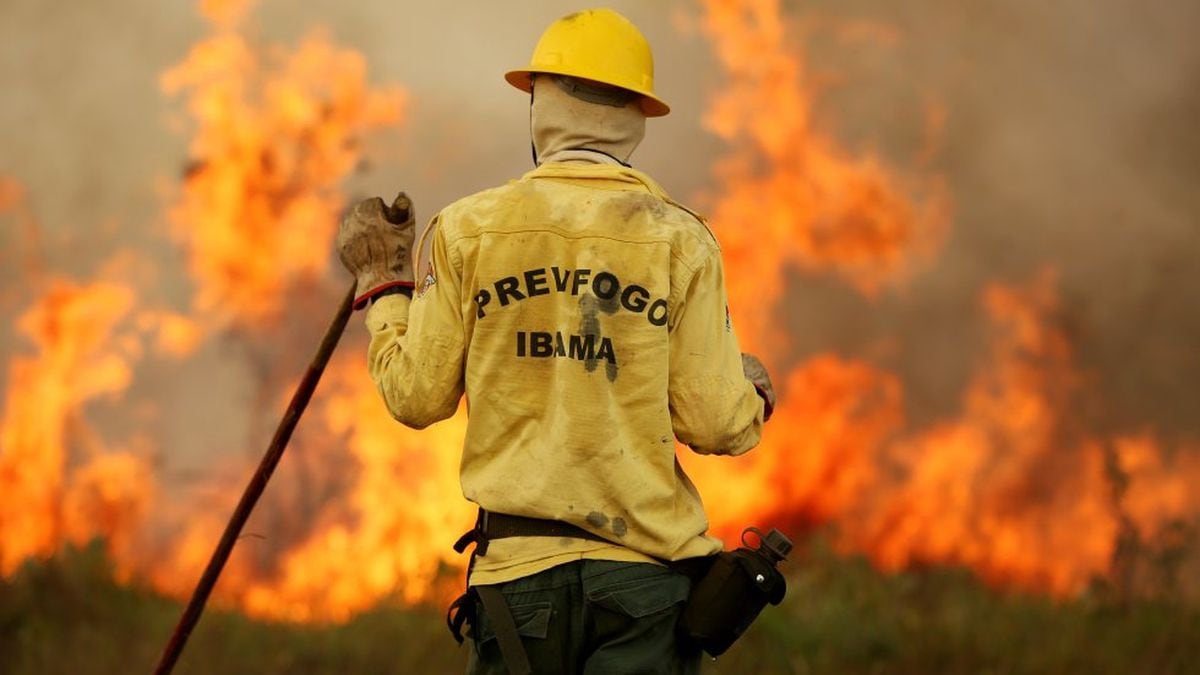EL PAÍS offers the América Futura section open for its daily and global informative contribution on sustainable development.
If you want to support our journalism, subscribe
here
.
"In the countries of South America, the increase in the number of deaths related to heat has increased by 160% only between the periods of 2017-2021, and 2000-2004."
This was one of the most impressive figures that the Peruvian doctor Stella M. Hartinger produced, during the presentation to the media of the 2022
Lancet Countdown
South America Report on health and climate change.
"The adverse effects are accelerating and disproportionately affecting vulnerable populations, a trend that will only continue if we do not take immediate measures," warned the director of this project who, for the first time in history, released a focused report exclusively in the region.
Carried out among 21 institutions and signed by 28 researchers who collected information from 12 countries (Argentina, Bolivia, Brazil, Colombia, Chile, Ecuador, Guyana, Paraguay, Peru, Uruguay, Venezuela, and Suriname), the report, published this Tuesday, brings together 25 indicators that not only warn about the impacts that climate change is having on our health, but also map out what benefits we could have if we mitigate this crisis and how to make our health systems more resistant to what is coming.
In addition, it launches several alarm signals.
A woman drinks water during a heat wave in Buenos Aires (Argentina), on January 17.
Enrique Garcia Medina (EFE)
Impacts: from heat waves to malnutrition
In South America, excessive temperatures are a matter of survival.
In the last ten years, heat waves have represented a greater danger for children under one year of age and adults over 65, the report notes.
This translates into an increase in heat-related deaths since the year 2000, which has had an upward trend in countries such as Brazil, Argentina, Colombia and Venezuela, the most affected places in terms of total attributable deaths.
However, the countries where this indicator has grown the most compared to the year 2000 are Ecuador (1477%), Guyana (328%), and Chile (225%).
This is also evidenced by a reduction in labor productivity.
Working in the heat has become so impossible that the potential loss associated with this drop in productivity in 2021 was equivalent to $22 billion.
In the region, in addition, fires also affect our health.
In South America the population has a very high or extremely high exposure to forest fires.
And, even, in nine of the 12 countries analyzed by the report, this exposure increased seven more days between 2018-2021, when compared to the reference baseline (1996 to 2005).
Likewise, the researchers clarify, the climatic scenarios for transmission diseases such as dengue to be stronger are getting better, since their suitability increased by around 35% in the period between 2012-2021, compared to what happened between 1951 and 1960. “To compound the increased risk of dengue posed by climate change, the temperate countries of the Southern Cone are highly vulnerable to the severe effects of dengue, driven mainly by rapid urbanization.
Argentina and Uruguay experienced an increase in vulnerability between 1990 and 2019," the document says.
As for food, the report states that this crisis will make having a healthy, balanced and accessible diet for all more complex.
During 2021, for example, the growing season for key crops like wheat, corn, soybeans, and rice trended downward, posing a "potential threat to crop yields."
Red meat and air quality pollute and endanger
Despite the fact that South America is only responsible for 6% of the emissions generated by climate change worldwide, reducing them would bring benefits to the health of its population.
39% of the region's emissions come from the energy sector and the burning of fossil fuels is becoming deadly air pollution.
Added together, in the 12 countries analyzed, exposure to particulate matter 2.5 or PM2.5 ― particles so small that they have a diameter up to twenty times smaller than that of a hair ― caused 37,000 deaths in 2020 alone, with Chile being the most affected countries and Peru.
The paradox is that governments continue to subsidize fossil fuels, even for a total value equivalent to 10% of health spending in the entire region.
The country that leads this toxic list is Venezuela, which gives it the equivalent of 85% of the national health budget, followed by Ecuador (29.2%), Bolivia (23.5%) and Argentina.
A similar relationship occurs with the consumption of red meat.
While 24% of South America's emissions come from land use change, where livestock plays a relevant role, 23% of all deaths attributable to unbalanced diets in the region have been linked to high consumption of red meat, processed and dairy products.
"Minimizing red meat consumption, based on dietary guidelines, would not only help prevent these deaths, but also reduce greenhouse gas emissions related to livestock farming and associated agricultural practices," the report said. .
A man rows among dead fish in Lake Rei during a month of drought, near the city of Careiro da Varzea (Brazil). MARCIO SILVA (AP)
A health that does not think about climate change
It is not just about the impacts, but about preparing for the new world that climate change brings.
And the health systems of South America do not seem to be prepared.
Only 10% of the health financing in the region, which is equivalent to 36 million dollars, is designed to adapt to climate change.
In addition, The Lancet
researchers clarify
, "only Brazil has developed a National Adaptation Plan for Health until 2021, while other countries — Argentina, Colombia, Chile and Peru — report having them ready, but they have not been presented or are in the developmental".
”It is clear that South Americans must act now to protect the health of their populations from the increasing health risks posed by climate change.
Governments must allocate funds to protect the health of local populations and take steps to transition to zero carbon emissions,” says Dr. Hartinger.
And it is that, in a place like South America, the relationship of climate change with health is more than that.
It is the right point where vulnerabilities can be enhanced or reduced.








